Childbirth can be magical, but for some mums, it can turn into a harrowing and intense struggle. In fact, nearly half of birthing women experience traumatic childbirth, a common yet often unspoken issue.
Up to 5% of women develop post-traumatic stress disorder (PTSD) after giving birth—that’s about 30,000 women a year in the UK. Many more experience symptoms like flashbacks or anxiety without a full PTSD diagnosis. For many, childbirth is not just physically painful but also emotionally overwhelming.
From intense pain during labour to near-death experiences, the challenges don’t end with birth. New mothers often endure sleepless nights and a crying baby with little time to heal.
This July 17-23 marks Birth Trauma Awareness Week, an annual campaign by the Birth Trauma Association, which has been advocating for and supporting those affected by traumatic births since 2017. This year’s theme highlights the critical need for informed consent during childbirth.
An alarming survey from the Birth Trauma Association shows that more than 40% of women had procedures like vaginal exams or membrane ruptures during labour without giving their consent. “This survey reveals a serious need for change in how we handle consent during childbirth. Women deserve to have a say in every procedure they undergo,” says Kim Thomas, CEO of the Birth Trauma Association.
Eve Canavan, Co-Founder and National Coordinator of Maternal Mental Health Awareness Week - Perinatal Mental Health Partnership adds,"Know that it is okay to advocate for yourself. You matter, your birth matters, and keep that at the forefront of your mind. It can feel, during pregnancy or in the frenzy of labour, that your voice might not be heard and that you may not be listened to, but know that it is the most important voice of all."
We spoke to experts about everything you need to know about birth trauma, from recognising the signs to finding support. We also share powerful stories of five mums who have bravely opened up about their traumatic experiences to shed light on this issue and support others who may be suffering in silence.
What is birth trauma?
"Birth trauma is a shorthand name for the experience of post-traumatic stress disorder (PTSD) after birth. PTSD has four main symptoms: reliving the trauma through flashbacks or nightmares; hyperarousal, which means feeling constantly anxious or on edge; avoidance of anything that reminds of the trauma (like TV programs about birth or hospital appointments); and negative cognition, including low mood and trouble remembering parts of the traumatic event,” Kim explains.
"At the Birth Trauma Association, we use the term 'birth trauma' more loosely to cover psychological distress and trauma after birth, as many women feel traumatised without meeting the full PTSD criteria.”
What is the most common cause of birth trauma?
The most common cause of birth trauma is severe or unexpected complications during labour and delivery, such as emergency interventions, intense pain, or medical emergencies. Procedures like emergency C-sections or forceps deliveries, especially when performed without adequate explanation or consent, can heighten feelings of distress and helplessness. Additionally, a lack of emotional or physical support and feeling out of control during the birth process can significantly contribute to a traumatic experience. These factors can leave lasting emotional scars and lead to post-traumatic stress.
Who is more likely to experience birth trauma?
Birth trauma can happen to anyone, from any background or walk of life. However, you may be more susceptible to it if your birth required lots of medical interventions or you are a victim of sexual assault, as giving birth can cause some of the traumatic memories to resurface.
It is not dependent on the length of your birth either, or how early or late your baby was, as traumatic events can happen at any time.
Kim says, "Any mum can experience birth trauma. This can occur after emergencies like caesareans or forceps deliveries, severe postpartum bleeding, or having a baby in the Neonatal Intensive Care Unit (NICU). Even if the birth seems straightforward to others, it can still feel deeply traumatic to the mum.
Sometimes a birth that looks straightforward to an outside observer can feel traumatic to the woman – we always say that if the woman found it traumatic, then it was traumatic. Birth partners can also develop PTSD from witnessing a traumatic birth – watching an emergency where you fear you might lose your wife or baby can be a terrifying experience."
What are the signs of birth trauma?
-
Flashbacks or upsetting dreams about the birth
-
Constant anxiety or being easily startled
-
Avoiding things that remind you of the birth
-
Difficulty bonding with your baby or feeling detached
-
Intrusive or persistent thoughts about the birth
-
Trouble sleeping due to anxiety or nightmares
-
Excessive concern about your baby’s safety or future births
-
Racing heart or trembling when reminded of the birth
-
Intense guilt or self-blame
-
Reluctance to seek medical care or support
Is there a difference between birth trauma and postnatal depression?
"Yes, though there can be an overlap in symptoms – anxiety tends to be a feature of both, for example. Birth trauma is often misdiagnosed as postnatal depression (also known as PND), but the two conditions feel different – women with birth trauma often say that although they knew something was wrong, they were also sure it wasn’t depression. Probably the biggest difference is the presence of flashbacks or nightmares – that’s a strong sign that it’s birth trauma. Just to complicate things a little, some women do suffer from both conditions and will need treatment for both," Kim says.
Five mums share their challenging childbirth stories
Five mums open up about their traumatic childbirth experiences, the strength they found to cope, and the support they wish they’d had.
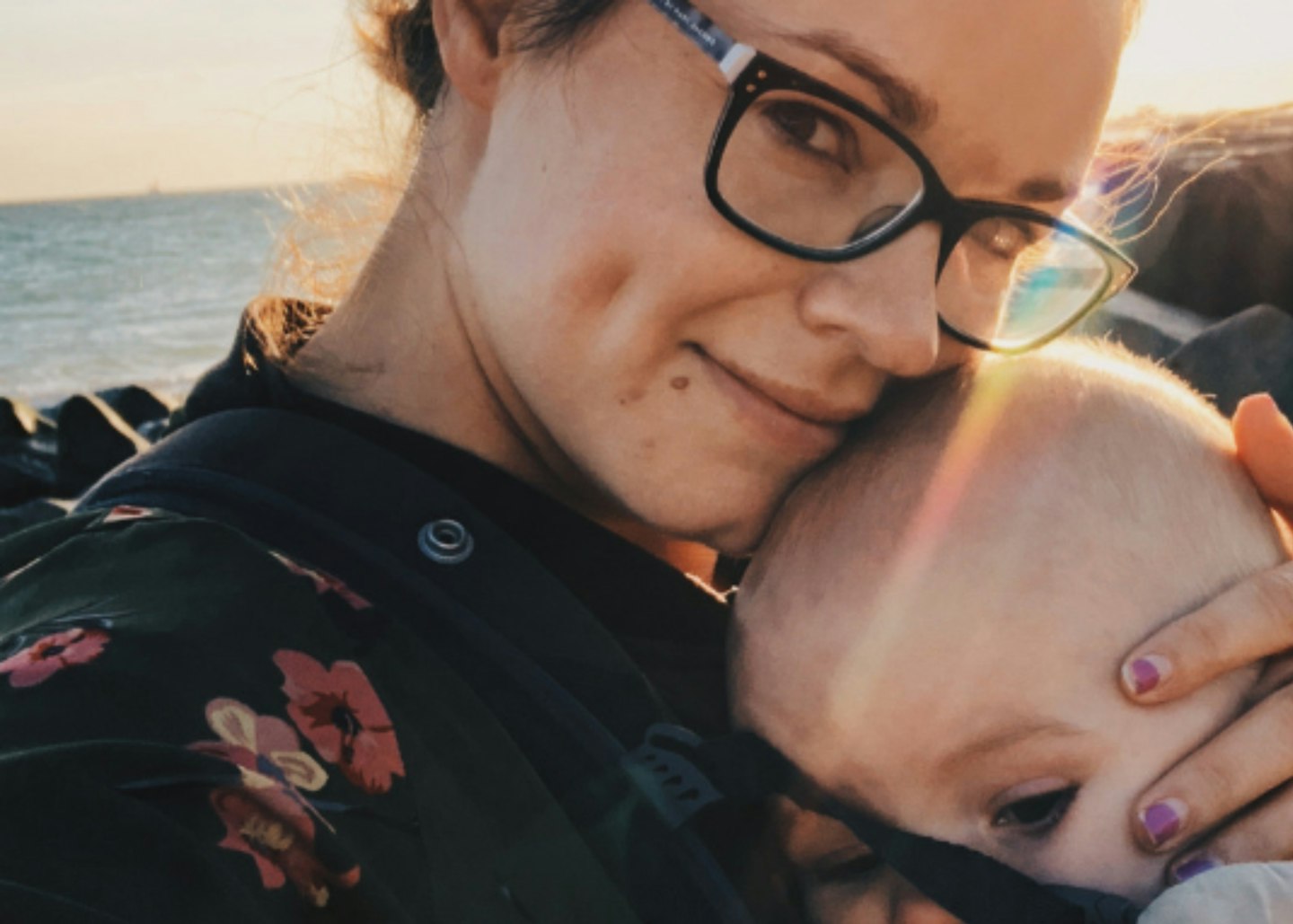
Sarah Tobin, EFT Practitioner, Shoreham-by-Sea
“The birth of our first child, Alice, ended in tragedy due to insufficient oxygen during the final stages. Inadequate monitoring and negligence led to her being born by emergency episiotomy, and she was taken to cooling in the NICU for 72 hours. After five days, we decided to take her off life support after an MRI confirmed minimal brain activity and no hope for her future.
The trauma of her birth, her short life, and her loss left me with undiagnosed severe PTSD, depression, and immense grief. I numbed my pain with alcohol for the first three months and struggled to find joy. We returned home to an empty car seat and a room full of her clothes and newly decorated bedroom.
The biggest support came from Emotional Freedom Technique (EFT) or Tapping. It transformed my life, stopping flashbacks and healing my heartbreak. Tapping prepared me for a planned caesarean one year after Alice and helped me achieve a Vaginal birth after caesarean section (VBAC) with our third baby, marking a full-circle healing birth. I trained to be an EFT Practitioner and am now a Practitioner Trainer.
Following Alice’s loss, no health professional asked about my emotional wellbeing or warned me about PTSD signs. I support many women recovering from birth trauma, finding it often misunderstood. Birth is a vulnerable time, and women place their trust in professionals.
I believe all professionals should receive trauma-informed training and use appropriate language. Disempowering language can lead women to blame themselves and feel inadequate, impacting their child’s wellbeing and creating long-term stress.”
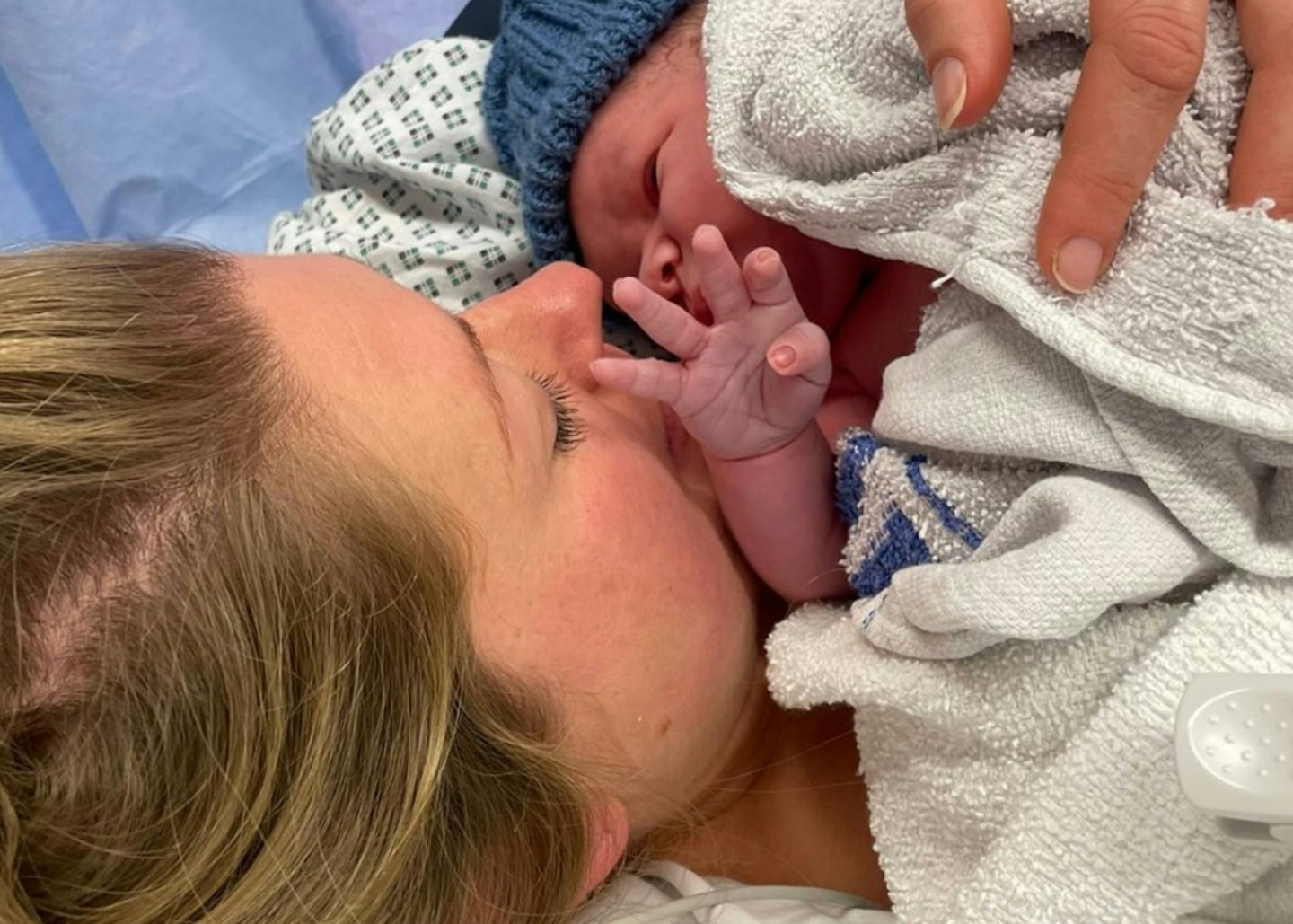
Hollie Grant, Pre/postnatal fitness expert, Dorset
"I remember flicking past the ‘caesarean’ sections of my pregnancy books thinking, 'well I’m not having a caesarean, so I don’t need to read this part.' My labour didn't go as planned, in any way... basically the total opposite to any plans I had. Sadly, at 39 weeks, I was diagnosed with suspected Obstetric Cholestasis, which meant my dreams of spontaneous, unmedicated labour in a midwife-led unit were unlikely unless I could get my baby (Freya) to make an appearance by 41 weeks.
There were not enough curries, raspberry leaf teabags, bottles of Clary Sage, episodes of Girls, or deep squats in the world that could make my baby (Freya) arrive on time, so I was booked in for an induction at 41 weeks. After three days of tiring labour, two inductions, and hyper-stimulation, my baby (Freya) wasn’t happy (neither was I), she was getting tired and her heart rate was rising, and I was rushed for an emergency caesarean. Despite this being a traumatic birth, I honestly know that hypnobirthing, being strong and fit, and having a birth partner who was able to advocate for me (my husband Stu) really helped make this labour more manageable. It will forever be the best day of my life, and I would do it every day for the rest of my life if I had to. This does not mean it was plain sailing, but it meant I used tools to try to manage the situation and my emotions. Every birth is special and precious in some way, even when it doesn’t go to plan."
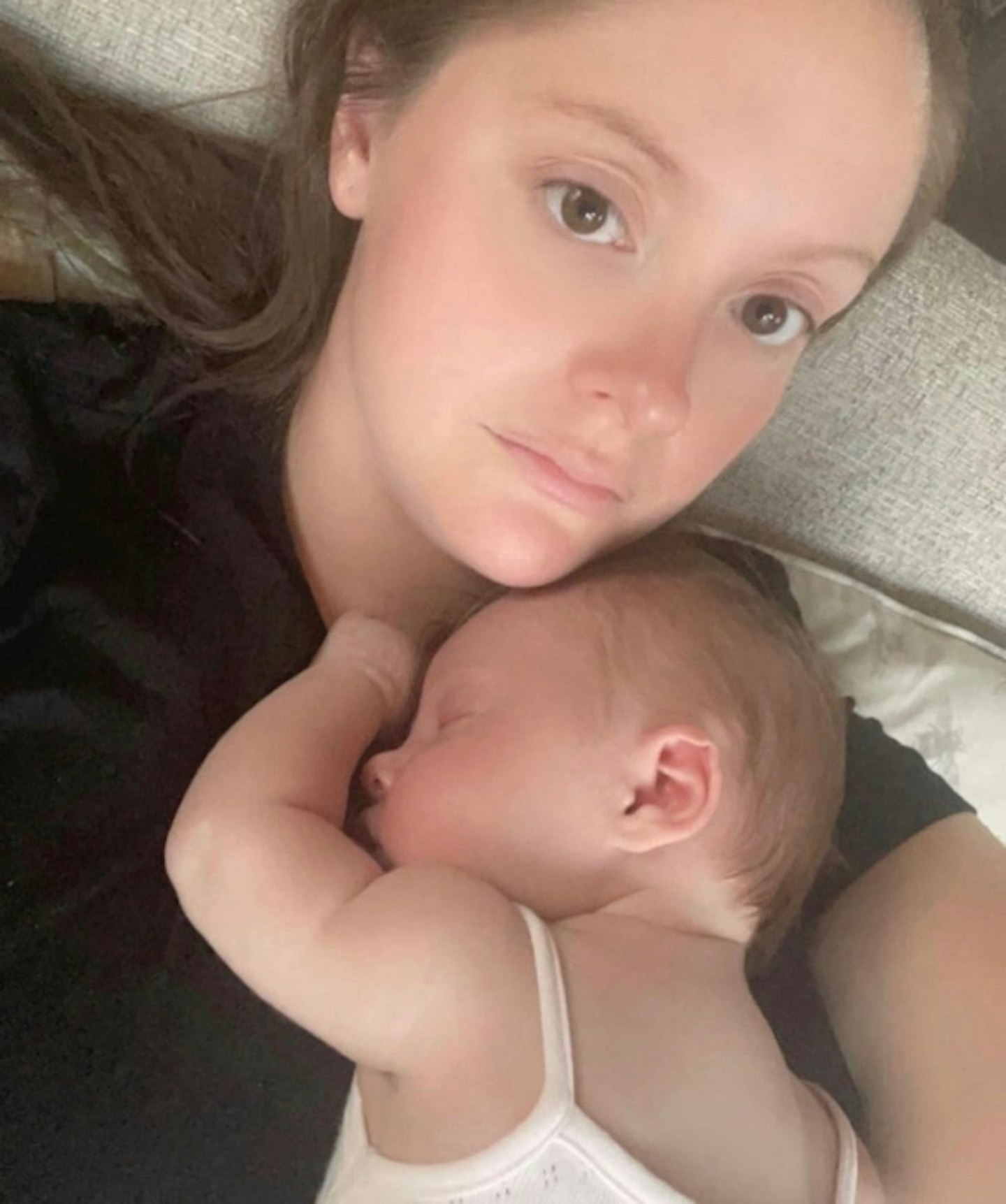
Keisha Meek, Leeds
“I have endometriosis and have had many surgeries, leading to a lot of scar tissue. I was induced and in labour for 17 hours, but the final part came on so quickly that I couldn’t have any pain relief. They said the scar tissue made it more painful for me. It was agony, and while my baby was a miracle, I’m physically and mentally terrified of going through it again. Speaking to other mums, especially those with endometriosis, was incredibly helpful. Conversations and pregnancy apps like Peanut helped me find mums in similar situations. Regular check-ins with my GP were also beneficial. I think postnatal care is largely ignored. Women are expected to immediately take care of their babies with no real recovery time or self-care guidance. There needs to be more focus on how mums and dads can care for themselves. Many end up with postnatal depression, but providing self-care tips and encouraging people to ask for help from day one could make a big difference. A baby needs a village, and we can create our own village through open and honest conversations. Talking about our birth experiences should be natural and encouraged.”
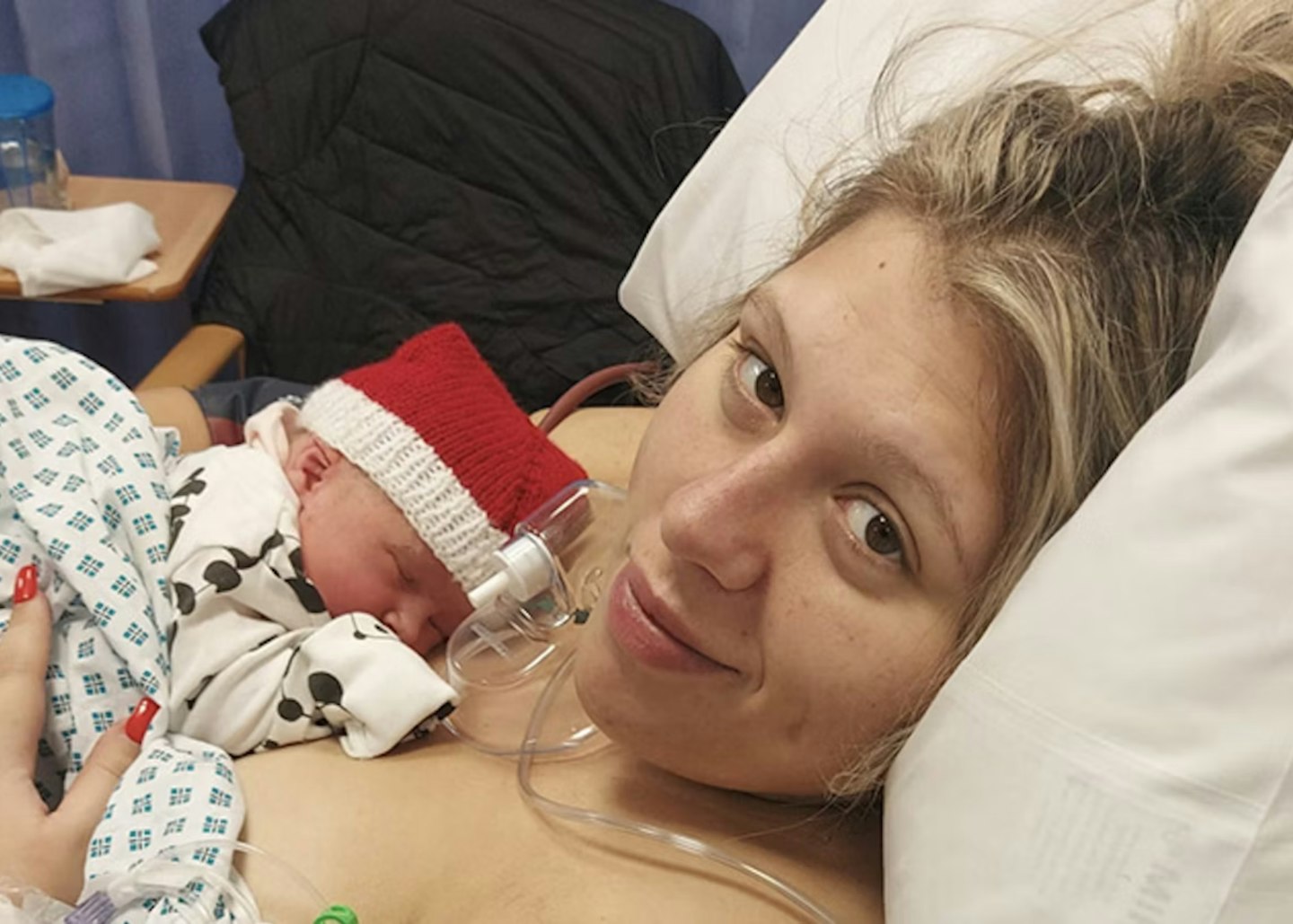
Victoria Moorhouse, Account Manager, Peterborough
“My birth trauma began on Christmas Eve when I was 35 weeks pregnant. After experiencing a normal pregnancy with minor bleeding, I suddenly woke up with intense lower back pain, which persisted into Christmas morning. My partner, Sam, urged me to call the hospital, and I was advised to come in despite initial assessments showing no major concerns. While waiting for a doctor to discharge me, I experienced a severe haemorrhage caused by a placenta abruption, putting both my life and my unborn daughter's life at risk.
In a chaotic and life-threatening situation, my condition rapidly deteriorated, and I was rushed to the operating room. Despite feeling desperate and scared, I advocated for myself by demanding immediate medical intervention. My quick thinking and insistence on urgent care were crucial as the medical team prepared for an emergency C-section. I shouted, 'I consent to everything just get her out now,' determined to save my baby's life. Thankfully, the operation was successful, and baby Imogen was delivered safely.
After the surgery, I learned that my prompt action and the hospital staff's swift response saved both my daughter's life and mine. The medical team explained that had I been discharged earlier, the outcome could have been fatal. Reflecting on this experience, I realized the importance of trusting my instincts and advocating for timely medical attention. This turned a potential tragedy into a Christmas miracle with the healthy birth of Imogen. My advice to others is simple: 'If you ever feel something isn’t right, get it checked out!'"
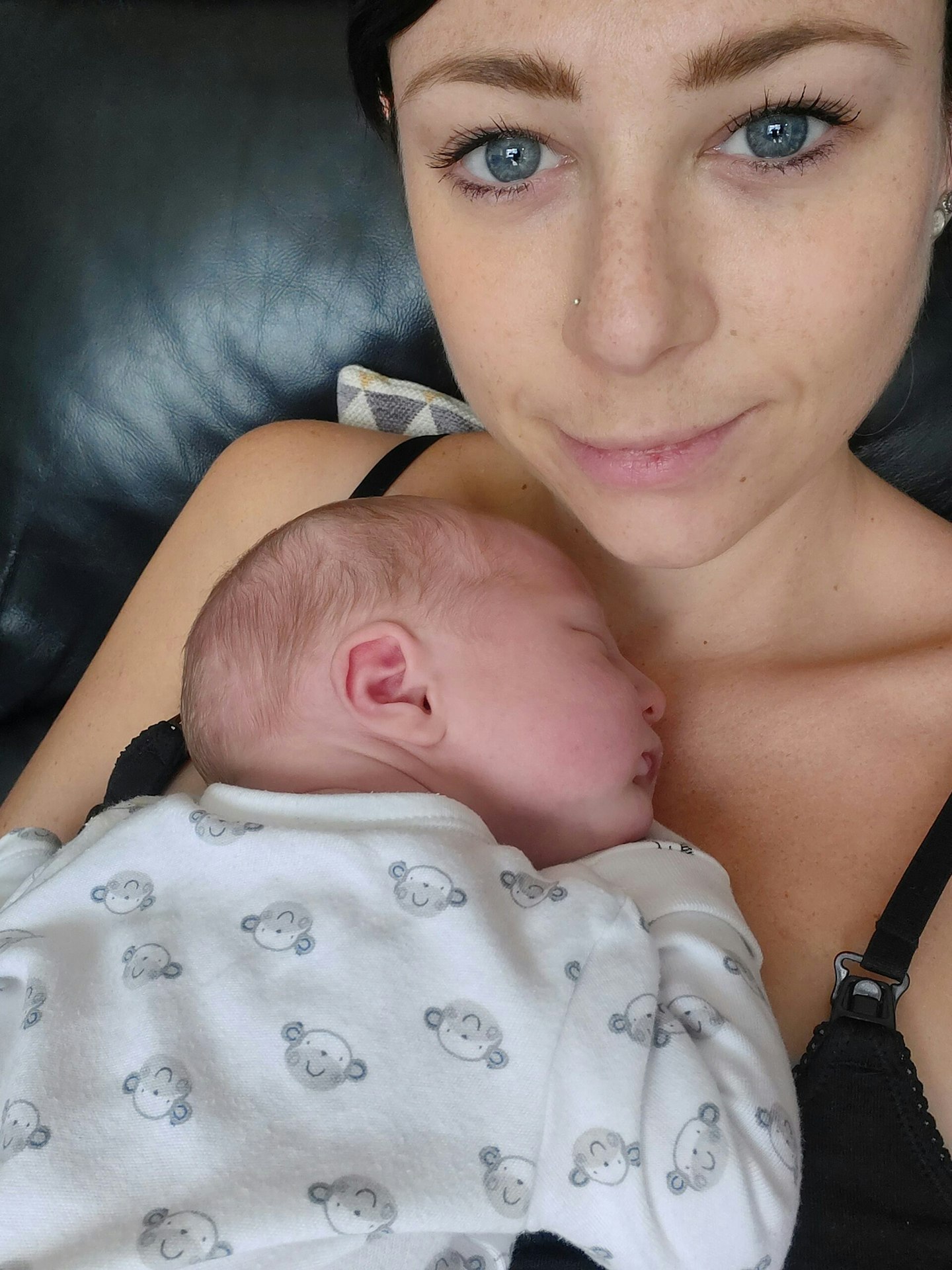
Natalie Greenwood, Teacher, Halifax
“As a first-time mum, I gave birth naturally in a birthing pool. My active labour lasted only three hours, resulting in significant blood loss. This required a few days in the hospital and iron infusions. The experience was very painful as I used minimal pain relief.
During my pregnancy, I frequently visited the Maternity Assessment Centre due to concerns about my endometriosis and lack of baby movement. They suggested that I have an early induction but I refused to have one because I was heavily influenced by an antenatal course that stigmatised pain relief leading me to view pain relief negatively and barely used any.
I aimed for a natural birth, believing it was the right thing to do. However, if I were to do it again, I would use as much pain relief as I needed.
Post-birth, I struggled with breastfeeding. Despite trying hard and seeking help, I experienced severe pain. My son was diagnosed with tongue-tie at nine weeks, but the procedure didn’t help. I felt traumatised and exhausted, eventually deciding to stop breastfeeding at three months. Despite my efforts, health professionals pressured me to continue, ignoring my declining mental and physical health. I believe more support is needed for new mothers. First-time mums are often told 'breast is best' without considering the impact on the mother's wellbeing.
I wish someone had reassured me that it was okay to stop breastfeeding for my health. My anxiety during pregnancy was also dismissed, despite my chronic illnesses, endometriosis, and fibromyalgia, which add to my stress. If I had another baby, I wouldn’t breastfeed due to the trauma I experienced. It’s crucial to discuss birth and pregnancy-related trauma and provide better support for new mothers.”
How can I advocate for my birth preferences?
If you are already dealing with birth trauma, it’s crucial to understand how advocating for your birth preferences can help in future pregnancies or births. Eve emphasises that taking charge of your own labour can significantly improve your birth experience and help prevent trauma.
She advises, "While pregnant, research and learn about your birthing choices (hospital birth, birth centre, birthing pool, home birth, for example), what pain management is available (epidural, gas and air, TENS machines, etc.), and what can happen if your birth doesn't go to plan. Consider creating a birth plan where you outline your labour preferences, delivery choices, and desired pain management. Understand that your preferences may change during active labour, but a flexible birth plan helps communicate your wishes to your care team."
During labour, things may not always go as planned, and it's essential to remember that this is not your fault. Eve reassures, "It's absolutely okay to highlight your needs and don’t be afraid to ask questions or refuse anything that doesn't feel right or makes you uncomfortable. Speak up—you absolutely can. Bringing a birthing partner with you can help amplify your voice and ensure your concerns are addressed. Informed consent is crucial—your doctor or midwife should explain any proposed interventions, their benefits, and potential risks. You should have the chance to ask questions until you feel well-informed."
How to heal from birth trauma?
Healing from birth trauma involves seeking professional support, such as trauma-focused therapy or counselling, and practising self-care through mindfulness, rest, and connecting with supportive friends or groups. Educating yourself about trauma and communicating your needs with healthcare providers can also help. Prioritising gentle bonding with your baby and addressing any physical symptoms with medical professionals are important steps. Most importantly, be patient with yourself and recognise that healing is a gradual process, celebrating each small victory along the way.
What to say to someone who had a traumatic birth?
Be understanding and supportive. Offer to help with practical tasks and listen without judgement. Say something like, "I'm really sorry you went through this; your feelings are completely valid, and I’m here to support you however you need." Encourage her to seek professional help if she’s ready, and reassure her that it’s okay to ask for support.
Where can I get support for my own birth trauma?
If you experience a traumatic birth, remember that it is not your fault. Even if you have planned and prepared, things may not always go as hoped.
Eve advises, "After giving birth, reach out to a healthcare professional if you face distressing physical or emotional difficulties such as flashbacks, nightmares, panic attacks, or feelings of detachment from your baby. Help is available through your GP, Perinatal Mental Health Teams, charities, and birth trauma organisations that offer therapy and support. Recovery can seem daunting, but it is possible, and there's no shame in asking for help. You can and will get better."
For support, contact the Birth Trauma Association’s peer support team at or join their private Facebook groupfor a supportive community. Professional therapies, such as trauma-focused CBT or EMDR, can also be very beneficial; discuss these options with your local GP. Additional resources include:
-
National Health Service (NHS) Services: Visit the NHS website for mental health resources and local support services
-
Postnatal Support Groups: Look for local or online postnatal support groups like Postpartum Support International, Maternal Mental Health Alliance
-
Counselling Services: Reach out to a licensed therapist specialising in birth trauma or PTSD
-
Helplines: Use confidential helplines such as the Samaritans (116 123) for immediate emotional support
-
Online Forums: Join online communities like Mother&Baby #MumTribe for shared experiences and coping strategies
About the expert
Dr Kim Thomas is the CEO of Birth Trauma Association. She wrote the 2024report of the parliamentary inquiry into birth trauma and is secretariat to the APPG on birth trauma. She has written two books about birth trauma: Birth Trauma, a guide aimed at helping women experiencing post-traumatic stress disorder after a difficult birth; and Postnatal PTSD: a Guide for Health Professionals.
Eve Canavan is the Co-Founder and National Coordinator of Maternal Mental Health Awareness Week at the Perinatal Mental Health Partnership UK. Passionate about supporting maternal mental health, Eve has dedicated her career to raising awareness and providing resources for mothers experiencing mental health challenges. Her work with the Perinatal Mental Health Partnership focuses on advocacy, education, and community support, ensuring that mothers have access to the care and understanding they need during and after pregnancy. Through her efforts, Eve has become a leading voice in the field, championing the importance of mental health care for new and expecting mothers.
About the author
Anne Lora Scagliusi is a Senior Digital Writer at Mother & Baby. She is a Scotland-based journalist with over a decade of international writing experience, specialising in women’s health, maternal mental health, and wellness. Her work has been featured in Vanity Fair, Marie Claire, and Glamour and has appeared on several Vogue global editions. She is mum to a one-year-old bambino and lives between Italy and the UK.
